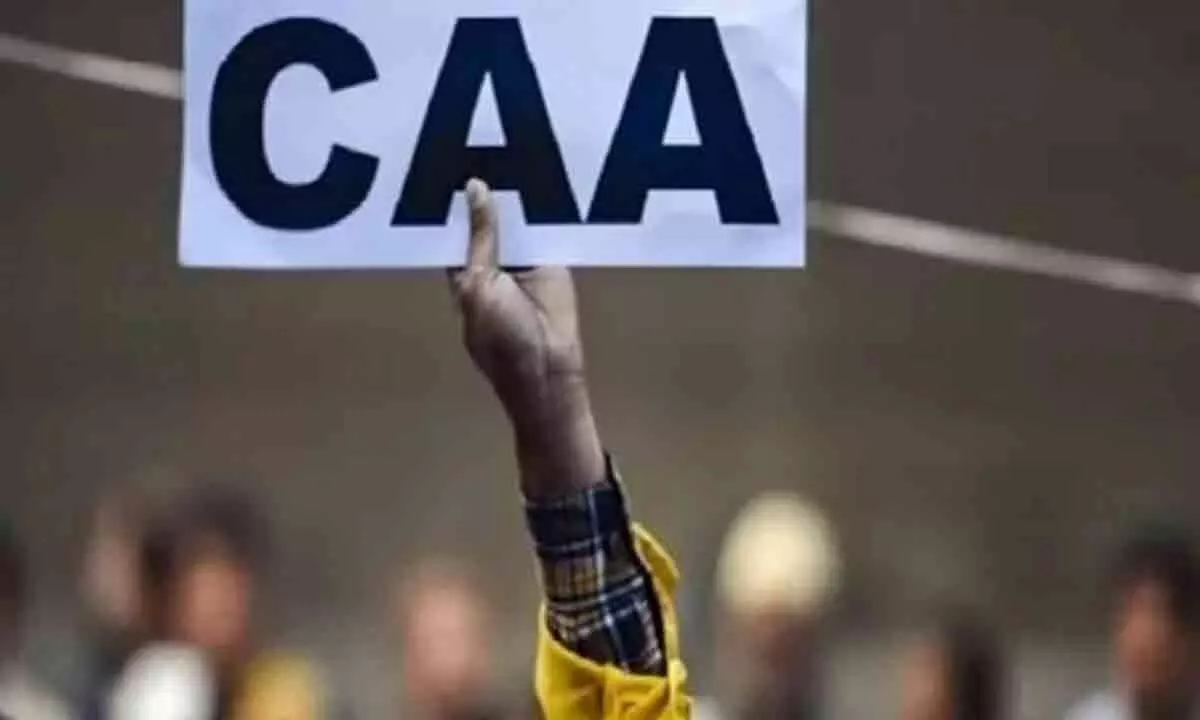Live
- Maoist killed, jawan injured in encounter
- Kerala Police Officer Brutally Murdered By Estranged Husband In Tragic Domestic Violence Case
- Pallishree Mela records good sales at Bali Jatra
- Kharif paddy purchase begins in Bargarh
- Faeces forced into tribal woman’s mouth
- Hyderabad's Air Quality Worsens as Winter Settles In | AQI Levels Reach Moderate Range
- Dead' Man Wakes Up En Route To Cremation In Rajasthan; Three Doctors Suspended
- Odisha to study root causes for migration of labourers
- Forest officials accountable for wildlife deaths: Minister
- WhatsApp Update: WhatsApp Introduces Voice Note Transcription
Just In
Controversial Citizenship Amendment Act Implemented By Indian Government Ahead Of Lok Sabha Elections


- 1. The Indian government officially enforces the Citizenship Amendment Act (CAA) after a five-year gap, sparking debates and heightened security measures.
- 2. The contentious legislation offers a fast-track pathway to Indian citizenship for persecuted migrants, drawing criticism for its timing ahead of the upcoming Lok Sabha elections and accusations of political polarization.
The Centre, on Monday, officially implemented the Citizenship Amendment Act (CAA), a significant move that comes five years after the legislation was passed in Parliament. The timing of this implementation is noteworthy, as it precedes the announcement of dates for the upcoming Lok Sabha elections by the Election Commission of India.
The application process for the CAA will be conducted online, facilitated through a dedicated web portal. Union Home Minister Amit Shah had previously declared that the implementation of the CAA would occur before the Lok Sabha elections, following the issuance of relevant rules.
The Citizenship Amendment Act, enacted by Parliament on December 11, 2019, has been a contentious and highly debated topic, sparking widespread protests across India. The legislation amends the Citizenship Act of 1955 to create a fast-track pathway to Indian citizenship for migrants from Afghanistan, Bangladesh, and Pakistan. Specifically, this applies to individuals belonging to Hindu, Sikh, Jain, Parsi, Buddhist, and Christian communities, who entered India on or before December 31, 2014, due to religious persecution in their home countries.
Protests against the CAA were particularly prominent in locations like Delhi's Shaheen Bagh and Guwahati, Assam. However, these demonstrations waned during the Covid-induced restrictions and lockdowns.
In response to the government's notification, the Delhi Police heightened security measures in and around the Shaheen Bagh area, which was previously the focal point of anti-CAA protests.
The Congress party raised concerns about the timing of the notification, alleging that it was strategically done to "polarize the elections." Jairam Ramesh, Congress's Communications In-charge, criticized the delay in notifying the rules for the CAA, stating that it took over four years and three months. He suggested that the timing, just before the elections, was an apparent attempt to influence voter sentiments, especially in West Bengal and Assam. Ramesh also linked it to managing headlines following the Supreme Court's criticism of the Electoral Bonds Scandal.

© 2024 Hyderabad Media House Limited/The Hans India. All rights reserved. Powered by hocalwire.com






